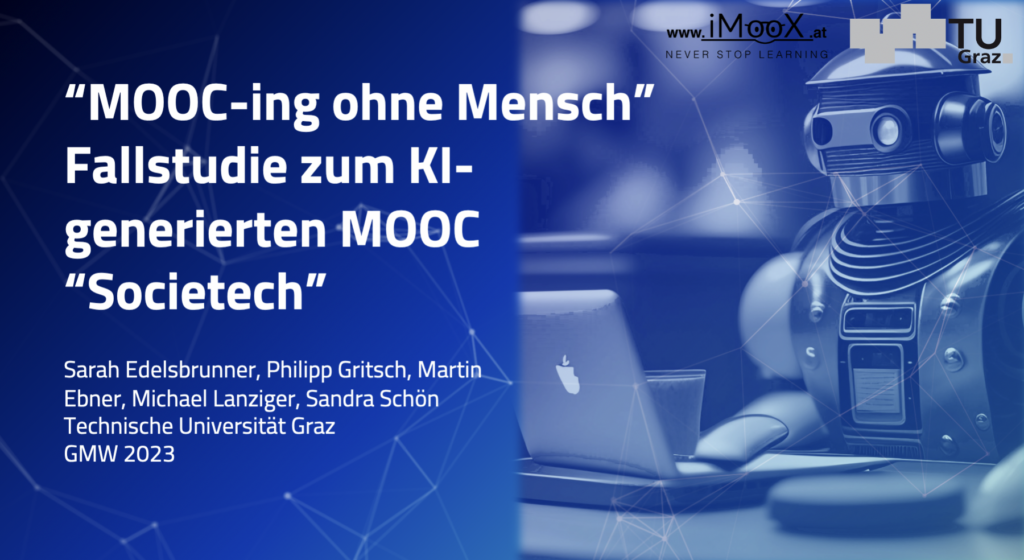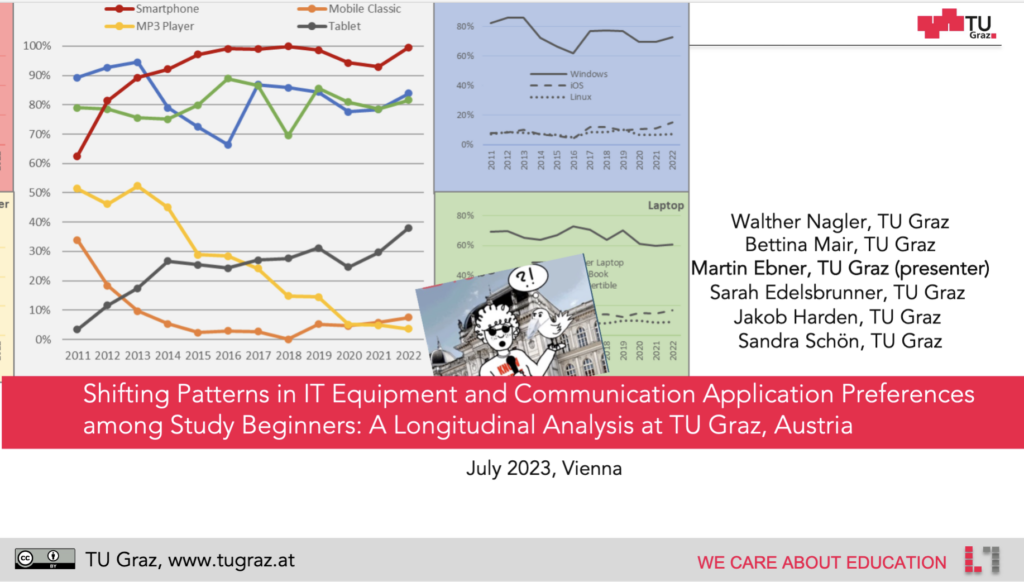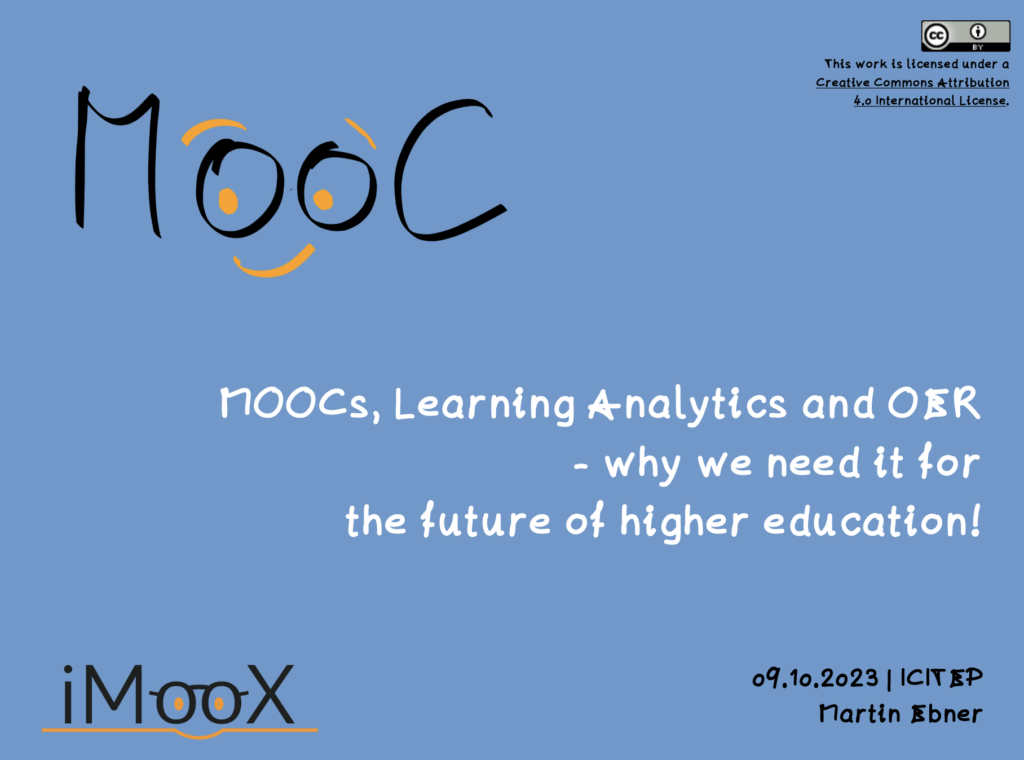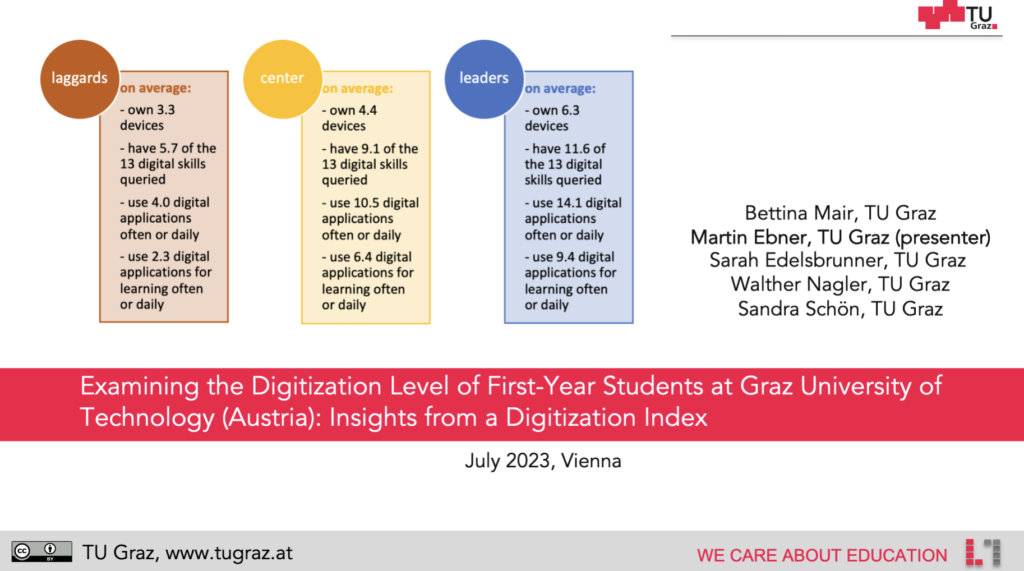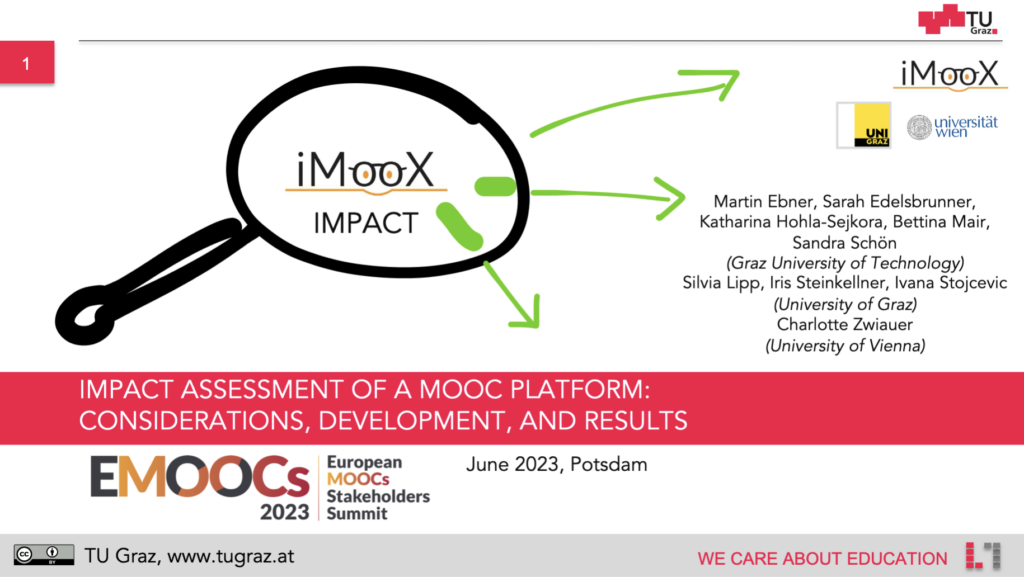Our chapter on „Digital Transformation of Teaching and Perception at TU Graz from the Students’ Perspective: Developments from the Last 17 Years“ we presented last year at ICL-conference is now online available:
The use of digital technologies in teaching to make it more varied, better, more diverse, or even more accessible is being pursued systematically at many universities. This article shows the developments in the digital transformation of teaching at Graz University of Technology (TU Graz) over the last 17 years. In the process, the various activities of Graz University of Technology and of the central department of teaching and learning technologies about the digital transformation of teaching and its focus and change during this period are described in the form of a workshop report. The consequences and developments of the Covid-19 pandemic on digital transformation efforts are also addressed. This is contrasted with results of two students’ surveys from 2014 (N = 1,502 complete questionnaires) and 2021 (N = 1,386 complete questionnaires). Within this contribution, the authors use the survey’s data to assess how students’ attitudes towards technology-enhanced teaching were changing at TU Graz. Mean indices were created to be able to compare the two surveys. This shows that despite the less good experience with teaching at TU Graz during the pandemic the attitude towards digital teaching is relatively satisfying. Nevertheless, the authors point out that the students clearly indicate that digital (distance) learning has a negative impact on communication between students and teachers as well as between students themselves, and that measures would be desirable here.
[full chapter @ book homepage]
[draft @ ResearchGate]
Reference: Martin Ebner; Bettina Mair; Christoph De Marinis; Hannes Müller; Walther Nagler; Sandra Schön; Stefan Thurner (2023). Digital Transformation of Teaching and Perception at TU Graz from the Students’ Perspective: Developments from the Last 17 Years. In: Auer, M.E., Pachatz, W., Rüütmann, T. (eds) Learning in the Age of Digital and Green Transition. ICL 2022. Lecture Notes in Networks and Systems, vol 633. Springer, Cham, pp 366–377. doi.org/10.1007/978-3-031-26876-2_34

